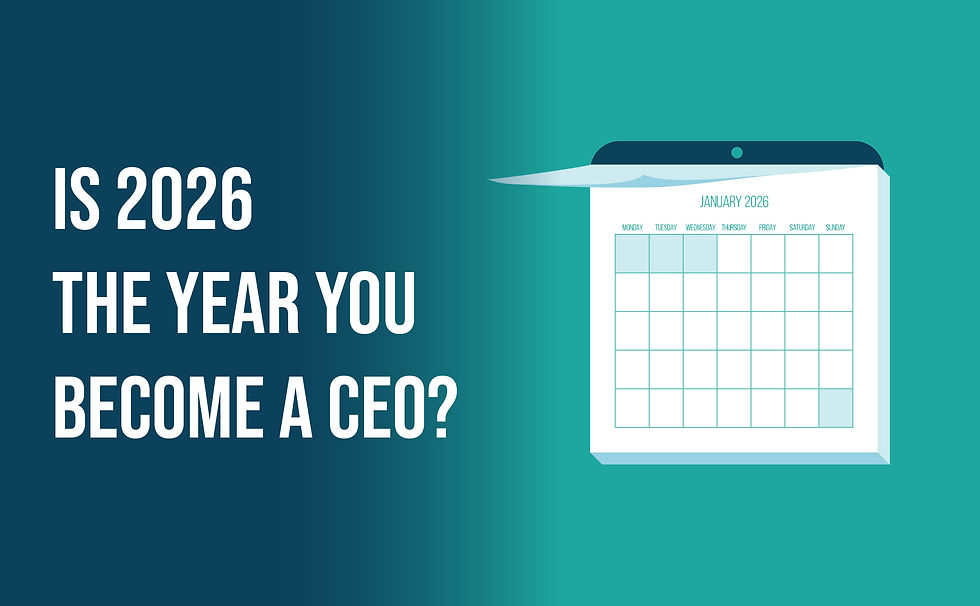HOW TO PREPARE FOR AN EXECUTIVE INTERVIEW
- Peter Sandor
- Nov 10, 2022
- 3 min read
Updated: Mar 30, 2023

When it comes to getting ready for an executive interview, you can never be too prepared.
If you missed our ‘Interview preparation part 1’ blog, you can find it here. As a recap, the first step when preparing for an executive interview is to do a company-based SWOT analysis, followed by a personal SWOT analysis. This will help you develop a strategy to answer potential interview questions.
In this article, ‘Interview preparation part 2’, we run through common types of interview questions and how best to answer them.
Hypothetical questions
Hypothetical questions are used by interviewers the world over to see how candidates think and how they’d perform in a certain situation.
Examples include:
· How would you deal with an unhappy customer?
· What would you do if your biggest client was threatening to go elsewhere?
· What would you do if your manager asked you to do something unethical?
What you may or may not know is that hypothetical questions can often help you gain insight some of the issues the organisation is facing.
“You can almost bet your bottom dollar that some of the hypothetical questions you’re being asked in an interview are real problems the organisation is looking to solve,” says Executive Interview Coaching founder Richard Elstone. “As such, it’s extremely important that you answer these questions effectively.”
How? The key is to never reply to a hypothetical question with a hypothetical answer. Instead, look back into your career to when something similar has happened and draw on that experience to explain how you would tackle the issue.
Behavioural interview questions
Behavioural interview questions are designed to pull back another layer to you, giving the interviewer deeper insight into your skills and experience.
Common themes include problem-solving, biggest failures, leadership qualities and/or your ability to work in a team. Examples include:
· Tell me about a time when you failed.
· Give an example of how you used initiative on a project that wasn’t going to plan.
· What is the most difficult problem you’ve had to resolve?
“Every interview usually has at least one or two of these kinds of questions,” says Richard.
“As you prepare for an interview, it’s important to think about real-life examples. Never talk about a failed project that you didn’t bring back online – it always needs to have a happy ending.”
Common interview questions: example 1
Strategic interview questions often come up, as employers want to see your decision processes and assess how you can bring their strategic goals to life.
You might expect to see an interview question such as: “When did you develop and implement a strategy?”
Use your previous experience to tell a story.
What did you do?
What processes did you go through?
Explain your thinking processes, who you consulted with, what the strategy was all about, how you presented that strategy (to the board or the executive leadership team) and how successful the strategy was.
“Storytelling is an important part of interviewing well,” Richard says. “It’s important to refer to the job specifications, anticipate the questions you’re likely to be asked and come up with actual examples that explain the measurable results you previously achieved.”
Common interview questions: example 2
Another interview question you may come across is: “Tell me about a time when you improved a process.”
This time, the interviewer will be wanting to see whether you have initiative, problem-solving skills and innovative ideas.
Choose an example from a previous role that is relevant to the position you’re going for. It’s a good idea to use the STAR technique when answering – Situation, Task, Action and Result.
“Before you launch into the solutions you came up with, it’s important to make sure the interviewer has an understanding of the business problems that led to the issue,” says Richard.
“Close by demonstrating the measurable impact you made, for example with improved sales numbers or enhanced productivity. If you don’t have exact numbers, explain the value you created for the organisation by improving that process.”
How can Executive Interview Coaching help?
Executive Interview Coaching offers a range of services to ensure you are 100% executive interview ready.
During the one-on-one coaching sessions, your coach will help you unpick the job description and anticipate the interview questions you may encounter.



